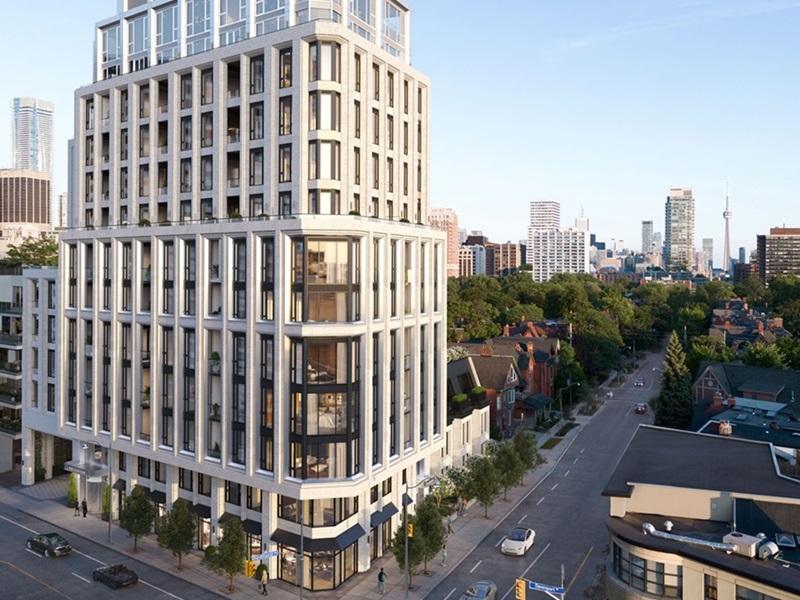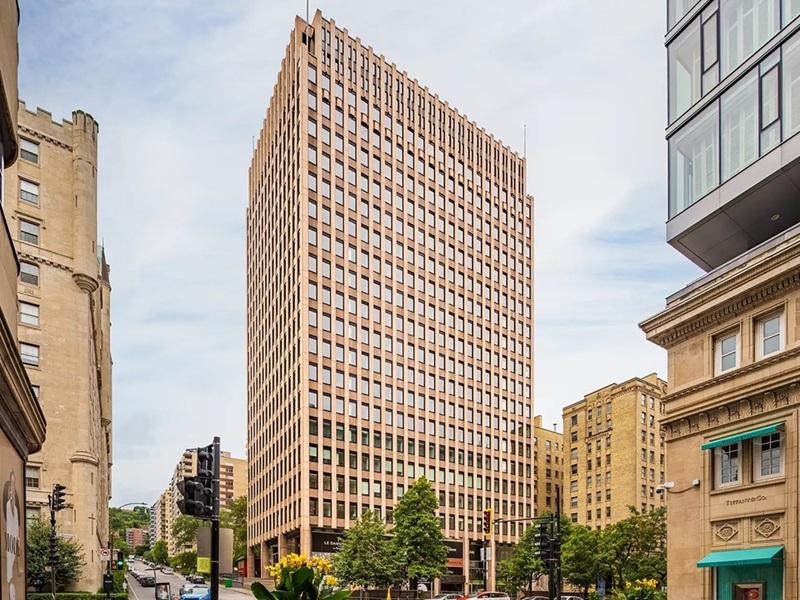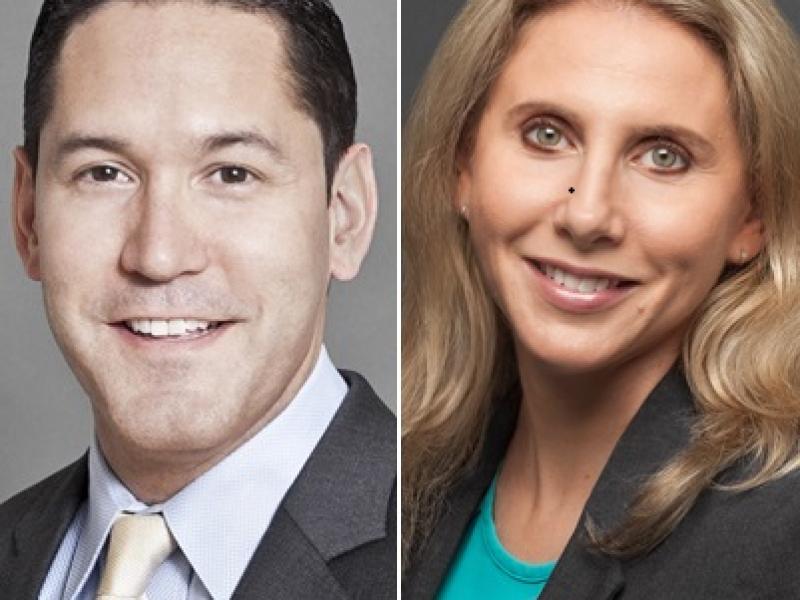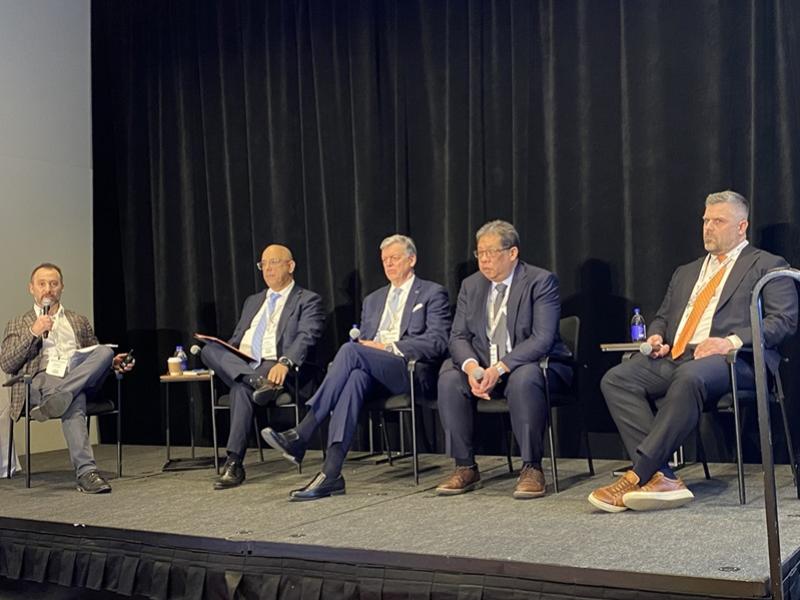
Fronsac REIT recently purchased this Metro store property in Gatineau, Que. (Courtesy Fronsac)
Fronsac Real Estate Investment Trust followed its 2019 growth with a strong Q1 2020 and is well positioned to weather the COVID-19 storm, its CEO believes.
Fronsac (FRO-UN-X) is an open-ended trust which acquires and owns triple-net and management-free commercial properties, with a portfolio largely comprised of fast food, convenience store, service station, grocery store and pharmacy chain tenants.
“Without knowing it, we’ve built a kind of pandemic-resistant real estate portfolio,” Fronsac president and chief executive officer Jason Parravano told RENX.
“The business model has remained the same. We’ve taken this company from five years ago with 10 properties to today with 64 properties, and from $20 million in assets to $170 million in assets.”
Fronsac’s net operating income (NOI) rose by 40 per cent last year from 2018 to $7.14 million. Eighty-seven per cent of the NOI came from national tenants.
Fronsac’s two newest acquisitions
The portfolio continues to grow. Fronsac announced its two latest acquisitions, through a joint venture in which it owns a 75 per cent interest, on June 1.
The first is a property with an Ultramar service station and convenience store located in a densely populated area of Trois Rivières, Que., which was purchased for $1.45 million.
The second is a site with an Ultramar station with a convenience store and a Subway restaurant in Bécancour, Que. A portion of the property will be demolished and rebuilt. The total cost of the project is estimated to be $2.5 million, with expected delivery in the fall.
Fronsac’s typical transactions are too large for individual investors but not large enough for bigger companies.
“We’ve been able to continue to find opportunities — market opportunities, off-market opportunities, development opportunities, joint venture opportunities — in the last few years,” said Parravano.
A growing portfolio
Fronsac acquired 10 properties last year and has bought seven so far this year. It now owns 57 properties in Quebec, four in Nova Scotia and three in Ontario. It serves just over 100 tenants.
The Pointe Claire, Que.-based REIT added Walmart and Laurentian Bank Financial Group to its tenant roster last year. It added its first Metro grocery store property and a second Walmart site this year. The Metro property in Gatineau, Que. was acquired for $4.6 million in early April.

Fronsac REIT president and CEO Jason Parravano. (Image courtesy Fronsac)
“That acquisition closed at the height of this pandemic,” said Parravano. “But we said to ourselves, ‘Who doesn’t want to own a Metro property at an attractive price right now?’
“So we continued with the deal. That’s how we have to treat all acquisitions going forward.
“What properties do you want to own right now? What properties do you want to own if this continues, because we don’t know how long this is going to continue for? And where can we place our capital to drive home per-unit returns for our unitholders?”
The Walmart property in Kenora, Ont., was purchased for $12 million at the end of February. At the same time, Fronsac acquired the site of a Petro-Canada gas station, a Beau-soir convenience store and a Tim Hortons restaurant in Farnham, Que. for $4 million.
Fronsac obtained a 75-per cent interest in a property in Saint-Étienne-des-Grès, Que. — composed of a Parkland gas station, a Beau-soir and a Tim Hortons — in March.
Other Fronsac property tenants include Sobeys, Loblaws and Staples.
Recurring funds from operations (FFO) per unit in Q1 2020 were 12 per cent higher, and recurring FFO were 46 per cent higher, than in the same period of 2019. FFO per unit has grown by 219 per cent since 2012, according to Parravano.
Fronsac’s distribution to unitholders in 2020 will be 15 per cent higher than in 2019, and it has had eight straight years of increased distributions. Parravano said distributions have grown by 104 per cent since 2012.
Fronsac’s April and May performance
Including deferral agreements for 13 per cent of gross rents in April and 10 per cent in May, Fronsac collected gross rents of 97 per cent in the two months that were hit hardest after governments ordered non-essential businesses to close to curb the spread of COVID-19.
Almost all of Fronsac’s tenants remained open during the height of the lockdown.
“There’s a big bulk of our portfolio which is operating at 110 or 120 per cent capacity right now, because they’re the ones that are open and they’re taking advantage of the situation,” said Parravano.
“The Walmarts, the grocery stores, the pharmacies and the Dollaramas of the world are all operating at capacity right now.”
Parravano said some tenants deemed essential closed voluntarily for a period of time because of a lack of traffic: “If there’s no one driving on the highways, it costs more money to stay open than it does to close.”
Ninety-seven per cent of Fronsac’s gross leasable area is now open, or at least partially open. The exceptions are a handful of sit-down restaurants that don’t have delivery or drive-through options.
“Am I upset that we purchased them?” asked Parravano. “Absolutely not. No one could have seen this coming and no one in their right mind would have walked away from corporate covenant dining-room-only restaurants at the time. Will they reopen? Yes.
“What we’re fortunate for is that these properties are not in the GMA (Greater Montreal Area) or GTA (Greater Toronto Area). These properties are in secondary and tertiary markets which will be the first to reopen.”
Fronsac is waiting for more details regarding the Canada Emergency Commercial Rent Assistance program, which targets small businesses.
“The onus really falls on your tenants to prove that they qualify,” said Parravano. “We are monitoring it, but I haven’t seen a big influx of requests.”
Fronsac stock price declines
Despite all of the good news, Fronsac’s stock price has been battered in recent weeks, like most other REITs. It closed at 49 cents on June 4, up from its recent 52-week low of 45 cents but well below its 52-week high of 74 cents.
“We’ve always looked at the stock price as a long-term play, where we don’t buy real estate to make money in the next 12 months,” said Parravano. “We buy real estate to make money over the next 10 years.”
Fronsac has a market cap of $72 million and Parravano expects small-cap companies such as his, especially those with heavy retail exposure, will experience short-term stock price volatility in this unprecedented environment.
“It’s unfortunate, but it’s a macroeconomic issue here. It’s not a Fronsac-specific issue.”
Public offering in February
Fronsac closed a public offering of trust units for the maximum gross proceeds of $18 million in February, about a month before the full impact of COVID-19 and the accompanying economic shutdown was felt in Canada.
“We were fortunate that we closed it when we did,” Parravano admits. “Had we waited a week or two, it would have been a lot more difficult and we would have lost out on some opportunities.
“However, I’m a firm believer that when you find opportunities to make good returns, people will still invest.”
Fronsac had approximately $10 million of cash and availability in its credit facilities in mid-May.
While the REIT continues to look for acquisitions, Parravano said, “The landlords or the private real estate investors who have held these kind of essential service assets are going to want to pull them close to the chest or for a little while longer.”
Parravano added banks have been more conservative with term loans over the past few months. In addition, some property owners are more focused on ensuring liquidity, collecting rents and trying to secure lease renewals than on potential transactions these days.
RELATED ARTICLES:
* Fronsac REIT is in ‘growth mode’: CEO







